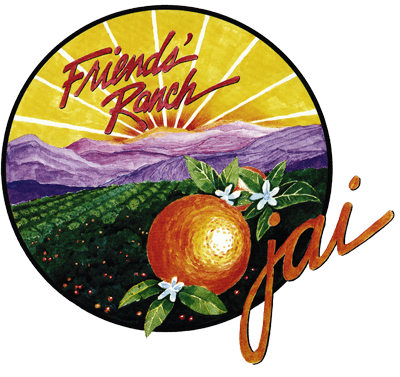FAQ and Fruit Facts

I'd like to visit a farm with my family, can I walk in your orchards?
No, due to liability and federal food safety law we no longer have orchard tours or public access to our orchards. The best place in Ventura county to visit a working farm and u-pick is Underwood Family Farms in Moorpark.
There are plenty of small farm stands around the Ojai Valley-- please purchase from them and do not trespass or steal from our local farms. Thank you.
How long will citrus last? Should it be refrigerated?
Fruit storage depends upon the variety and the time of year. Thicker skinned fruit, such as Pixies and Grapefruit hold quite well at room temperature. Fruit will not hold as well if it has been picked after a rain event or hot spell. Most citrus will last several weeks from the time at which it is picked from the tree. Unless refrigerated, fruit should be removed from plastic bags as plastic makes fruit sweat and increases the likelihood of spoiling.
Where can I purchase a tree?
Any good nursery should be able to order any variety of citrus tree for you. Be sure to give the nursery advanced warning as it often takes several months to a year for them to get specialty varieties such as the Pixie. In temperate northern hemisphere climates it is best to plant citrus in the late spring or early summer.
Locally we recommend Green Thumb nursery in Ventura; they are quite good at sourcing just about any available variety of plant.
Your county agricultural extension office or the USDA are good sources for information about farming and gardening in California. Look in your phone book under “UC Cooperative Extension Service,” or online at http://ucanr.org/ce.cfm.
Why don’t some citrus varieties have seeds?
Varieties such as the Navel orange and Pixie tangerine are naturally seedless. Traditional breeding of citrus (the transfer of pollen from one type of citrus to flowers of another) can give rise to new varieties of fruit. Sometimes the resulting fruits are naturally seedless. Buds can then be taken from these natural seedless varieties and grafted onto rootstocks to create all the new trees. The fact that a fruit or vegetable has no seeds does not mean that it has been irradiated or genetically engineered.

All tangerines are mandarins, but not all mandarins are tangerines. The name ‘tangerine’ originated from fruit grown in Tangiers and has been used in the United States for many varieties of mandarin. At Friend’s we call them all “tangerines” as that is what Elmer Friend called them and he planted our first trees. There are several hundred varieties of mandarins in the world, of which several dozen are grown commercially in great quantities.
Traditional breeding of citrus has been going on since citrus has been propagated by humans. Taking pollen from one citrus tree and pollinating flowers of another citrus tree can give rise to a new variety which can be propagated or crossed with other citrus. Over many hundreds of years this has led to the diversity of citrus fruits we have today. The plant breeders at UC Riverside are still working to create new varieties. As California orange growers have hit hard times with poor prices for Valencia and Navel oranges, many of them are switching to tangerines. This is probably good for the consumer: you now have the opportunity to sharpen your taste buds on a number of new tangerine sensations such as the Tahoe and Shasta Gold varieties which we grow!
See the citrus variety collection information from the University of Riverside for loads of great information about citrus.
